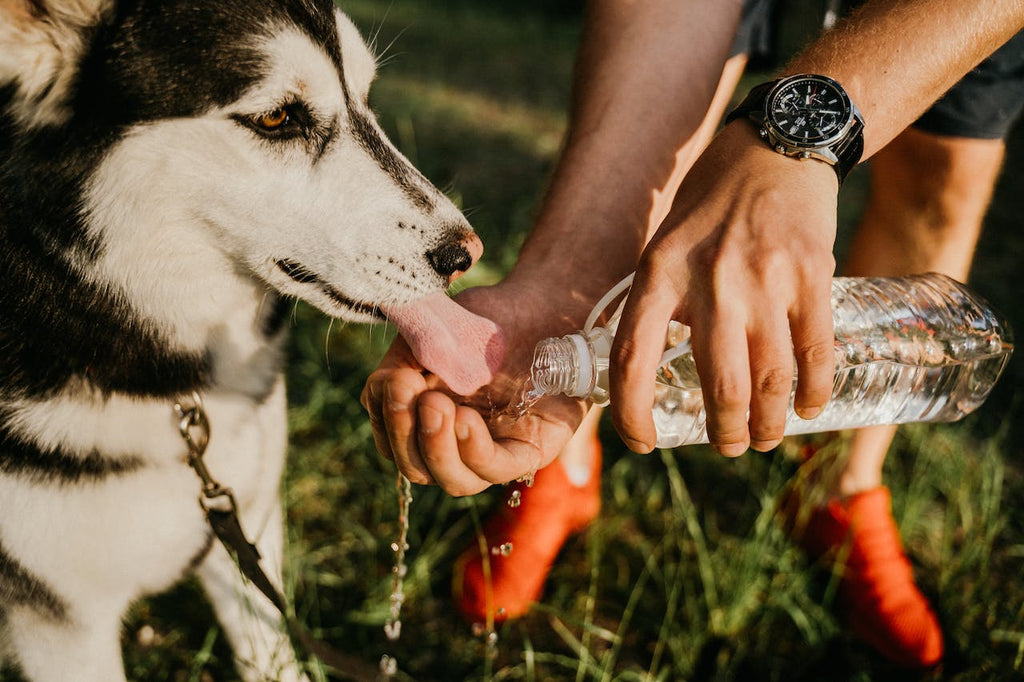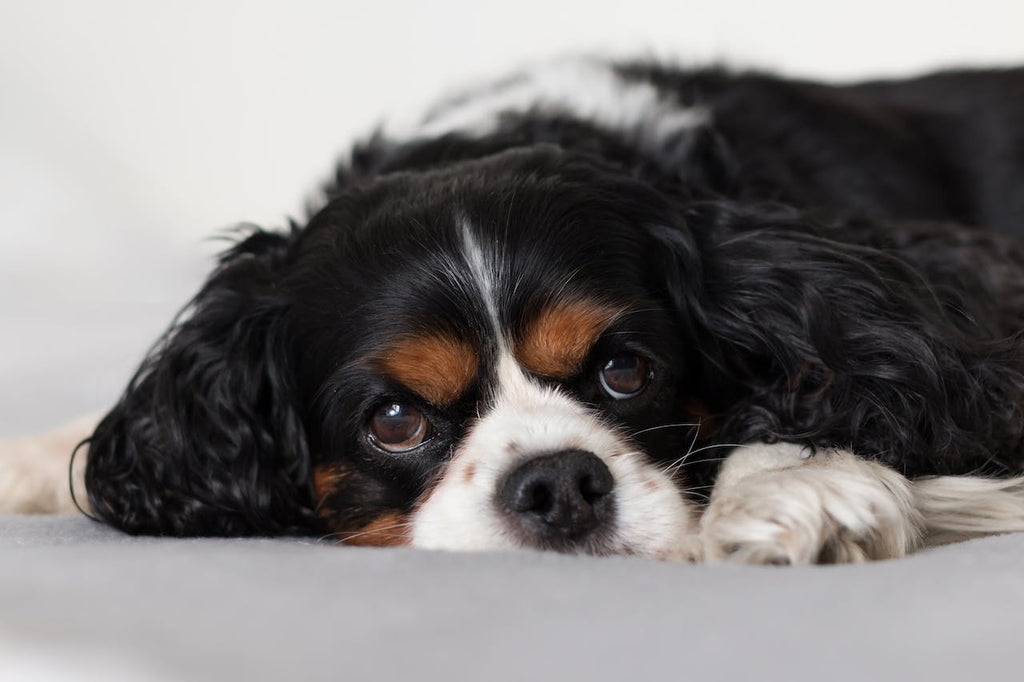Why Is My Dog Not Drinking Water?
Posted by Jeffrey Powers on
We've all been there: one moment, our beloved canine companion is lapping water enthusiastically, and the next, they're turning up their nose at their water bowl. A change in your dog's drinking habits can be alarming. Water is essential for all living creatures; our furry friends are no exception. When you notice that your dog isn't drinking as much water as usual or not at all, it's only natural to be concerned.
Dehydration in dogs can lead to serious health complications. It's essential to understand the various reasons behind your dog's refusal to drink, whether behavioral, environmental, or medical. Some causes are benign and easy to address, while others might require prompt veterinary attention.
The journey to ensuring your pet stays hydrated begins with knowledge. So, why is your dog not drinking water? Keep reading to learn more about potential causes, signs to look out for, and steps you can take to address the issue.
Understanding the Importance of Hydration
Hydration plays a crucial role in the health and well-being of our dogs. Like humans, water serves multiple essential functions within a dog's body. Vital for maintaining body temperature, it ensures that your furry friend doesn't overheat or become too cold. It also aids digestion and nutrient absorption, providing their food is effectively broken down and utilized.
Furthermore, water helps flush toxins from the body. This is particularly important for dogs, who often come into contact with various chemicals and toxins, whether sniffing the ground or ingesting something they shouldn't.
Another notable function of hydration is that it keeps joints lubricated. This is especially crucial for older dogs or those with joint issues, as it helps them move easily.
Lastly, hydration is essential for overall organ function. Every organ, from the brain to the kidneys, requires adequate water to function optimally.
Common Behavioral Reasons
Sometimes, the reason behind a dog not drinking water is behavioral. If there has been a change in their daily routine or environment, this could be the root cause. Dogs are creatures of habit, and sudden shifts can affect their drinking patterns.
Another reason could be anxiety or stress. Dogs are sensitive to their surroundings and can get stressed easily. If so, consider relaxing your pup with some calming CBD dog treats.
A previous negative experience with a water bowl can also deter them. For instance, if the bowl tipped over and startled them, they might be wary of approaching it again.
Some dogs may prefer other water sources, like puddles or even the toilet, which may seem fresher or more appealing. And in some cases, it could be as simple as boredom with the water bowl or its location. Moving the bowl or introducing a new one might solve the issue.
Related: How to Calm a Dog During a Storm at Night
The Impact of Diet on Hydration
Diet can significantly influence a dog's hydration levels. Dogs that consume primarily wet food will naturally intake more water compared to those on dry food diets. Moreover, if they've tasted salty or spicy treats, they might drink more to compensate for the increased thirst.
Conversely, sudden changes in regular feeding habits can decrease their water intake. Some foods, like watermelon, naturally contain water and can increase their hydration levels.
Similarly, if you've recently switched to a homemade diet, their water consumption might increase depending on the ingredients used.
Are you concerned About Your Dog's Hydration? Discover natural solutions to address stress and other potential causes. Check out our specially formulated CBD products to help keep your furry friend relaxed and hydrated.
Environmental Factors

The environment in which your dog lives can also influence their drinking habits. The availability and freshness of water make an impact. Dogs might refuse to drink if the water isn't fresh or if the bowl is empty. Additionally, temperature and humidity levels can dictate their thirst levels. On hotter days, dogs will ideally drink more.
The material and cleanliness of the water bowl can also deter dogs. Some might be sensitive to plastic bowls, while others might refuse to drink from a dirty bowl.
The location of the water source matters as well. They might avoid it if it's too far or in a noisy area.
Lastly, if your dog spends a lot of time outdoors, exposure to outdoor contaminants can affect their thirst, making them drink more or less.
Related: Stressed Dog Body Language: Top 10 Signs
Physical Activities and Hydration
Physical activity has a direct correlation with a dog's water intake. Just like humans, dogs can experience increased thirst after intense play or exercise. If your dog has been actively playing for a prolonged period, it might lead to dehydration, prompting them to drink more water once they're done.
Overheating is another critical factor to consider. Exposure to high temperatures for extended periods can cause a dog to pant heavily, making them lose more water than usual. This is why ensuring your dog has access to water during and post-exercise is vital.
Whether you're engaging in training sessions where water can be offered as a reward or during long walks, periodic water breaks can help keep your pet hydrated and prevent dehydration.
Dental and Oral Health Issues
Oral health plays a significant role in your dog's drinking habits. If they're experiencing painful gums or teeth, they might be reluctant to drink water. This can also be the case if they've recently undergone dental procedures or experienced trauma in the mouth.
Another concern is the presence of foreign objects in the mouth, which can deter them from drinking. Things like sticks, bones, or toys can sometimes get lodged in their gums or between teeth.
Oral infections or diseases can also impact their willingness to drink, as can tumors or growths that make drinking uncomfortable or painful.
Potential Signs of Underlying Health Issues

The reluctance to drink water sometimes indicates a more severe health issue. Lethargy or decreased activity is often a primary indication that something is wrong. If your dog's nose and gums appear dry or their eyes appear sunken, these could be visible signs of dehydration.
Other symptoms to watch out for include changes in urine frequency or color, indicating potential kidney issues or dehydration. Unexplained weight loss, paired with a decreased water intake, can cause concern and should prompt a visit to the veterinarian.
Solutions and Tips to Encourage Drinking
A general rule of thumb for determining the amount of water a dog should drink daily is 1 ounce (1/8 of a cup) of fluids per pound of body weight.
If your dog hesitates towards their water bowl, you can try offering flavored water. Chicken broth, in moderation, can be a tempting alternative for them. Some dogs are also attracted to drinking fountains or moving water sources that mimic natural streams.
Ensuring the water is regularly refreshed and kept clean can make it more appealing. Providing multiple water sources around the house or yard gives them options and increases their likelihood of drinking.
If you've identified the bowl or its location as the problem, consider gradually changing water bowls or their placements to see if it makes a difference.
Is Stress Affecting Your Dog's Drinking Habits? Don't let anxiety come between your pet and their water bowl. Find out how our curated collection of CBD products can make a difference.
Wrapping Up Canine Hydration Concerns
Understanding and addressing the reasons behind your dog's change in drinking habits is vital for their overall health and well-being. Dehydration in dogs can lead to many health issues, so always being attentive to their water consumption patterns is essential. Factors ranging from behavioral and environmental to underlying health concerns can influence your pet's hydration habits.
Being proactive is key. Every small effort can make a big difference, whether it's ensuring they have fresh water, offering them enticing alternatives, or changing their environment. Remember, while certain dietary and environmental adjustments can be made at home, it's imperative to consult with a veterinarian for any severe or persistent hydration concerns.
Consider natural solutions like CBD products for animals to relax your furry friend. After all, the more they relax, the more appetizing a bowl of water looks. Check out our collection of specially crafted CBD products designed with your furry friend's health in mind.
